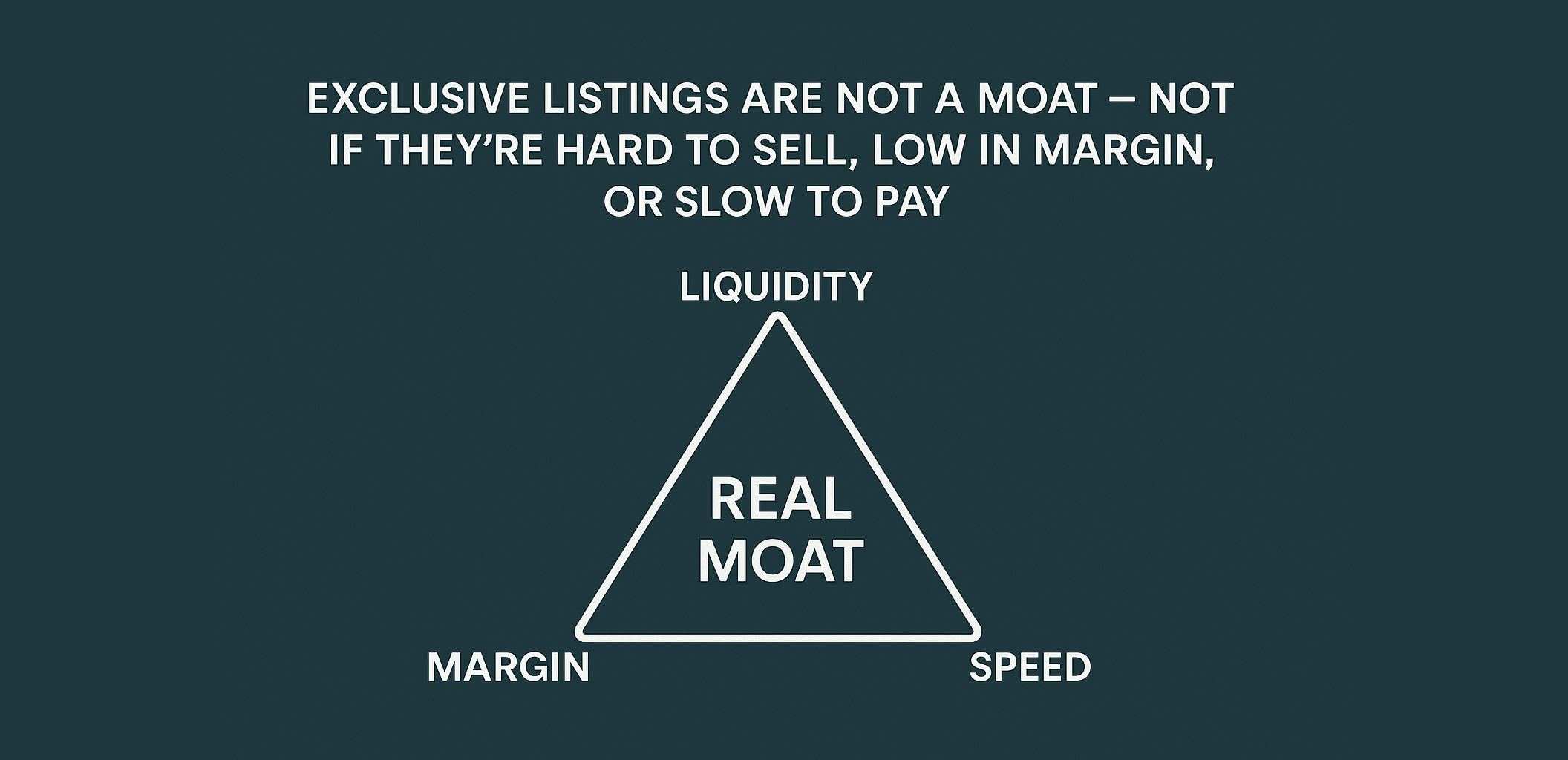Exclusive Listings Are Not a Moat — Not If They’re Hard to Sell, Low in Margin, or Slow to Pay

For years, many agency bosses have treated exclusive listings as the ultimate badge of power. Control the listings, control the market — that was the old belief.
But in today’s Malaysia, exclusivity without liquidity, margin, and speed isn’t a moat. It’s a bottleneck.
1. Exclusivity ≠ Defensibility
Exclusive listings look impressive on paper.
You hold the sole right to market a project or property, lock out competitors, and protect your team’s effort.
But exclusivity is only a permission — not protection.
If the property is overpriced, unattractive, or slow to move, your “exclusive” deal quickly becomes an exclusive liability.
You’re stuck with marketing costs, idle agents, and false prestige.
A true moat isn’t about access. It’s about advantages.
2. It Has to Be Easy to Sell
The first rule of any real moat: buyers must want what you’re selling.
If the unit type, pricing, location, or loan eligibility is weak, exclusivity only magnifies the pain.
Every viewing that doesn’t convert burns morale and budget.
A real moat begins with a verified, market-fit inventory — properties that sell themselves when presented properly.
That’s why serious agencies build verification systems, not just marketing exclusives.
3. It Has to Be Profitable to Sell
Even a fast-moving listing can drain the company if the commission tier is too thin.
A sustainable agency moat depends on good to high commission rates — enough to cover:
- Leader overrides and company margins,
- After-sales servicing,
- Marketing reinvestment, and
- Future talent development.
If you’re closing deals at 1% when others earn 3–5%, you don’t have a moat; you’re financing someone else’s project.
4. It Has to Pay Fast
Cash flow is the real oxygen of an agency.
A listing that pays only 1 year after SPA signing, or worse — after loan disbursement — kills momentum. Agents lose trust. Leaders lose morale. Bosses lose the ability to scale.
A real moat ensures commissions are paid quickly and transparently once the SPA is signed and verified. That’s not just a financial policy; it’s a trust system.
5. A Listing Without Liquidity Isn’t a Moat
Let’s be honest:
A listing that’s exclusive but difficult, low in commission, and slow to pay is just inventory with ego attached.
A listing that’s easy to sell, profitable to sell, and quick to pay — that’s an engine.
And engines, not exclusives, build moats.
Final Thought
Your moat is not the lock on your listing.
Your moat is the speed, margin, and trust built around it.
Build systems that:
- Filter listings by verified demand,
- Standardize fair commission splits, and
- Automate fast payout after SPA.
Only then does exclusivity turn from illusion into advantage.
Because in modern real estate, “exclusive” doesn’t protect you — execution does.











































































































